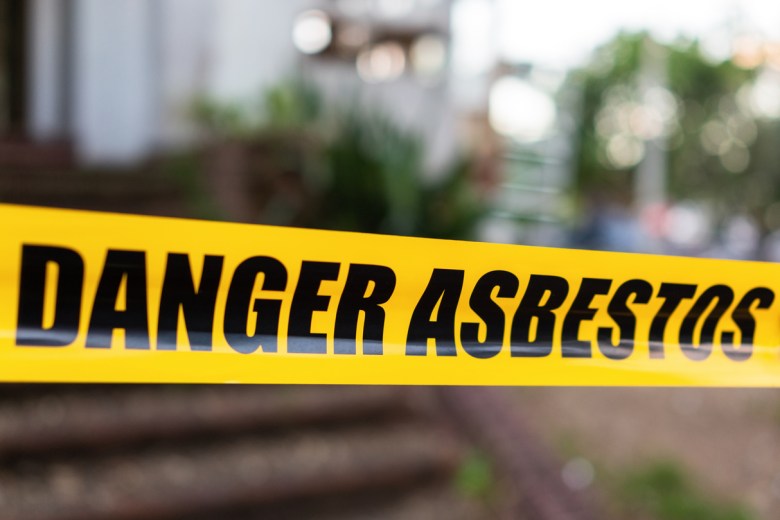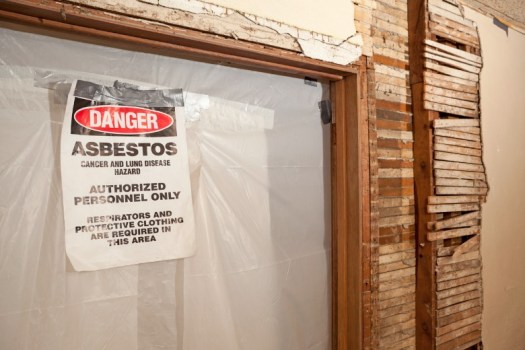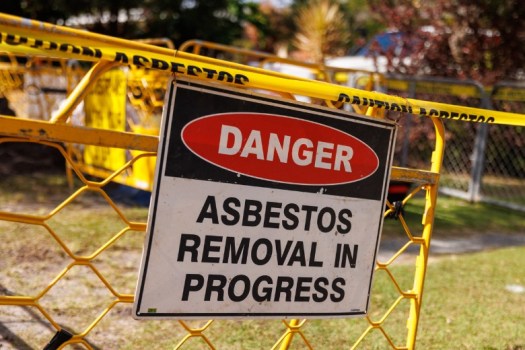
Companies that dump asbestos face penalties of up to $10 million and individuals up to $2 million as the NSW government responds to the asbestos contamination scandal that’s affected at least 75 sites across Sydney.

Public land managers, including councils, will also be able to issue on-the-spot fines of $5,000 to companies and $1,000 to individuals for small-scale illegal dumping under amendments to the state’s environmental protection laws announced by the EPA on Thursday.
Environment minister Penny Sharpe told a budget estimates hearing earlier this month the discovery of asbestos at Rozelle Parklands has sparked the biggest investigation in the EPA’s history, which has seen around 6,500 tonnes of suspect mulch tracked down and tested.
Beefed up environmental laws
The NSW Government on Thursday introduced changes to environmental laws to strengthen penalties and boost the EPA’s powers to deter repeat offenders and fine polluters, as the EPA undertakes a criminal investigation into the asbestos trail.
“This is the first step the NSW Government is taking to ensure environmental frameworks are preventing contamination entering the community and recycling streams and enforcing deterrents to environmental crimes,” the EPA said.
The NSW Government will consider further changes in response to the ongoing investigation into contaminated mulch or recommendations of the Asbestos Taskforce.
‘Low levels of asbestos’
Ms sharpe told the March 6 estimates hearing it was important to note that only low levels of asbestos have been detected, and it was non-friable putting it at the lower end of health risk.
“It is still absolutely unacceptable that it’s there,” she said.
The minister also said the initial phase of the supply chain testing was “pretty much done”.
“The ongoing work from here, which I can’t talk to you about but is extremely important, is obviously the criminal investigation into what has gone wrong here.
“The EPA will be pursuing that, and I look forward to that coming to a conclusion,” she said.
Support for Councils
Local government minster Ron Heonig also came under pressure in a separate hearing about the support that’s being provided to councils, which the committee heard were under “extraordinary pressure from the community to address asbestos and reopen parks and public spaces”.

City of Sydney, Inner West and Penrith council have the most affected, with the issue already costing City of Sydney more than $200,000, the committee heard.
Mr Hoenigh told the committee “ The principle is polluter pays, so ultimately the polluter’s going to be paying.”
Executive Director of Local Government in the OLG, Douglas Walther, said the government recognised that councils were being impacted and the EPA and SafeWork have been meeting with them and working to reduce the clean-up bill.
“We are currently putting together a protocol that recognises the clean-up cost and making sure that we can reduce those burdens to councils in the clean-up,” he said.
“We do operate on a polluter pays principle … however, from time to time there have been instances of pollution where the polluter, for some reason, hasn’t paid, so we are also exploring public liability and other insurances of the contractors involved in the work.”
Asbestos ‘everywhere’
Ms Sharpe said prior to 1990 over 3,000 products used asbestos.
“It is actually everywhere across the State,” she said.
“It’s in one in three houses. We have contaminated sites. It appears naturally in the environment as well.
“Regulations over time have been tightened and changed. I think this has shown that we need to do more work about that.
“We’ve asked the chief scientist to do that work, which will inform future activity in relation to this.”
The Environment Protection Legislation Amendment (Stronger Regulation and Penalties) Bill 2024 includes:
- Doubling maximum penalties for Tier 1 serious offences to $10 million for companies and $2 million for individuals
- Doubling maximum penalties for Tier 2 asbestos-related offences to $4 million for companies and $1 million for individuals
- More than doubling on-the-spot fine amounts for certain Tier 3 offences to $30,000 for companies for a first offence and $45,000 for a second offence. For individuals this will be $15,000 for a first offence and $22,500 for a second offence
- Doubling on-the-spot fines for general littering of small items to $160 for individuals and corporations in public places
- Cracking down on small-scale illegal dumping with maximum penalties of $50,000 for companies and $25,000 for individuals. On-the-spot fines of $5,000 for companies and $1,000 for individuals will be able to be issued by public land managers, including councils, NSW Police and the National Parks and Wildlife Service
- Implementing a specific, higher penalty for small scale illegal dumping on sensitive land such as childcare centres, hospitals, schools, national parks and beaches
- Increasing maximum penalties for breaching resource recovery orders and exemptions from $44,000 to $2 million, or $4 million for offences by corporations involving asbestos waste
The legislation also introduces new product recall powers for materials that might be contaminated with harmful substances across an entire supply chain, and establishes a public ‘name and shame’ process to issue public warnings about poor environmental performers and sub-standard practices.
The Land and Environment Court will also be able to ban serial and serious offenders from applying
for an environment protection licence.
Comment below to have your say on this story.
If you have a news story or tip-off, get in touch at editorial@governmentnews.com.au.
Sign up to the Government News newsletter


